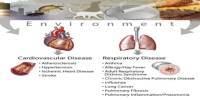Hepatitis C is a serious disease, but the virus is not the most dangerous factor to one’s health. Rather, it is the diseases that can arise as a result of it, such as decreased liver function, scar tissue in the liver, and possibly cirrhosis. According to a new study, the antiviral treatment that has been used to combat the disease for the past five years also helps to improve the complications that follow.
“It’s fantastic news because the treatment is effective in almost all hepatitis C patients, but the fact that it also works against complications is brand new to us. And this is critical for this group of patients because they die not from the hepatitis C virus, but rather from the diseases that chronic liver damage can cause “Tea Lund Laursen, PhD student at Aarhus University’s Department of Clinical Medicine, agrees.
A new effective treatment of hepatitis C not only combats the virus, but is also effective against potentially fatal complications such as reduced liver functioning and cirrhosis.
The results have just been published in the scientific journal Journal of Viral Hepatitis.
Hepatitis C is the leading cause of liver cancer and the need for liver transplants. It is caused by a virus that you can contract if you come into contact with contaminated blood. It could be spread by an unclean tattoo needle, for example. It can sometimes spread during sex.
It is treatable. Curing it, on the other hand, hasn’t always been easy or comfortable. For decades, you had to endure painful shots of interferon and a pill called ribavirin. These medications did not target the virus that caused your illness. Instead, they boosted your immune system so you could fight it like you do when you get the flu.

Less scar tissue and improved cognitive function
It can take 20-30 years after being infected with hepatitis C for a person to develop symptoms. During this time, the majority of patients’ liver inflammation becomes chronic, resulting in serious damage.
“With the study, we now know that even if patients discover the disease late, the new treatment gives them a better prognosis. When they become virus-free, it is simply because their liver is on the mend “Tea Lund Laursen agrees.
The study included 71 patients with chronic liver inflammation who were followed before, during, and after treatment. The studies revealed that their liver’s inflammation had decreased, there was less scar tissue, and the liver’s ability to break down various substances had improved. At the same time, the researchers could see that the patients were reacting to sounds faster than before they started the treatment.
“Chronic liver inflammation can also cause cognitive problems, such as fatigue, poor memory, and slower response times. However, one year after the 12-week course of treatment, we may see an improvement in reaction times. As a result, we anticipate that this will also be true for the other cognitive functions “Tea Lund Laursen agrees.
Major perspectives in antiviral treatment
According to the Danish Health and Medicines Authority, approximately 17,000 people in Denmark are infected with hepatitis C, with approximately half of them unknown to the healthcare system. The vast majority were infected through the sharing of syringes. They include both former and current drug users, as well as people who engaged in high-risk behavior in their youth 30-40 years ago, many of whom are unaware that they are infected.
“If people in the risk category contacted the healthcare system, we would be able to save or improve the lives of a large number of people, and we would also be able to more or less eradicate hepatitis C in Denmark in the long term,” Tea Lund Laursen says.
While the number of people infected in Denmark is relatively low, hepatitis C is a major problem worldwide, with approximately 160 million people infected. The disease is especially prevalent in several West African countries, as well as Russia and Greenland.
Treatments for hepatitis C are being developed at a rapid pace. As a result, what doctors recommend in each case may differ. Researchers may continue to develop new treatments, and some of the medication combinations listed below may change as new discoveries are made.
















